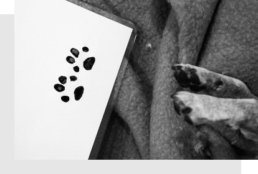Suicide among helping professionals: Don’t forget veterinarians

Images Supplied: Michael Weinhardt (So Many Other Things)
Today is World Suicide Prevention Day. This is a topic close to my heart. 4 years ago, I lost one of my best friends to suicide. I am not unique in having been affected by the suicide of a loved one. I’m certainly not the only one sharing a personal story today, or during September, which is World Suicide Prevention Month.
Since that day 4 years ago my life has shifted immeasurably; I’ve changed careers, focus, living situation and had my own experience of a mental health challenge with a period of burnout. One of the most positive changes I’ve made is to go from being a “generalist” market researcher, investigating all manner of topics from shelf heights, to shampoo, to selling whiskey online to a specialist in a single industry: veterinary.
This means that most of my working life involves investigating the thoughts, behaviours, needs and frustrations of one type of professional: Veterinarians
Before I was spending my days getting insights into the working lives of those in veterinary clinics around the world, my perception of the profession was, almost literally, one of kittens and rainbows. Even though I count some veterinarians among my closest friends, who told me, frequently about the difficulties they face, I couldn’t see past my own love of animals.
Now, after a year in the industry, I’ve heard enough stories to really appreciate the realities of being a veterinarian. It’s hard work. It’s thankless much of the time. And it certainly isn’t a job anyone would ever choose for the money.
Veterinarians are among the groups with the highest risk of suicide. Female veterinarians in the US are 2.4 times more likely than the general population to lose their lives to suicide, male veterinarians 2.1 times.
In Australia, one veterinarian every 12 weeks takes their own life. They are twice as likely to do so as other helping professionals.
And in the UK veterinarians are 3 to 4 times more likely to take their own life than the average UK resident.
We know the statistics, so what?
Lots of statistics; one story. Vets across the world are more likely than the average person, and the average helping professional, to lose their lives to suicide.
This isn’t new news. There are lots of great people doing great work to try and change this statistic. What I believe is lacking is awareness, and much more importantly, understanding.
As a one woman veterinarian lover, my reach for raising awareness is not going to be impactful. I’m writing today to do my best to provide any reader even a little bit more understanding of this issue, so that they might go on to raise awareness, or even just see their own veterinarian in a different light. I also write to confront the taboo; it’s ok to discuss suicide. We should talk about it.
Helping professionals are at great risk of burnout and compassion fatigue. Carers, nurses, doctors, paramedics…….veterinarians are all too often left out of these stories.
What we don’t think about enough
I don’t seek to dismiss the pressures that other helping professionals are under, but there are some pressures unique to veterinarians that are not widely understood.
A common misconception of veterinary life is that it is all “cute puppies and kittens”. And, of course, there is some of that. Here’s a cute picture as proof.
Exhausted veterinary professionals in the clinic.

1. Veterinarians are the ultimate detectives
As much as we might feel we can communicate with our pets, they can’t describe to us what is wrong. Veterinarians must diagnose with far fewer cues that someone working in human healthcare would get. They are in a position of being the helper, the fixer, the curer; the mediator, the counsellor, the solution. When you are the helper, it is hard to step back and see that you need help.
2. The complexities of multiple species….
Dogs, cats, ferrets, rabbits, parrots, rats, guinea pigs. All smaller, cuter and better behaved than humans but no less complex. Often, there isn’t the specialised equipment or optimised medications needed for these species
3. …and the complexities of human and humanised relationships
Complex too is the relationship management involved in veterinary working life. A good veterinarian needs to be multi soft skilled, as well as having the required medical and technical skills.
A good veterinarian must be able to:
- Calm a worried pet
- Calm an owner worried about their pet
- Deal with conflicts caused by worried owners
- Moderate the complex and increasingly anthropomorphised relationship between owners and pets
Veterinary professionals are not only good, but many are also highly empathetic. In short this means; they care. A lot. This leads to emotional work:
- Managing their own reactions and resilience during a difficult case – whether that difficulty is animal or human caused
- Consider their team; mentoring and providing skills to less experienced staff
- The lasting impact of a poor outcome for a patient, or a difficult client interaction; which needs to be dealt with outside of clinic time
Veterinary colleagues hugging each other

4. The perception of a veterinary professional’s emphatic nature works against them
The common perception that veterinarians are fluffy animal lovers can cause serious issues. It results in anger from owners when they are told that there’s nothing that can be done, or that the required treatment is too expensive. All too often clients have an expectation that, somehow, shared love of an animal is enough to provide the financial and other resources needed to cure it. They also have tunnel vision; quite understandably; they see their pet, their emotions only. They don’t see that level of compassion, expertise and relationship management that their veterinarian has already had to put in that particular day. This results in veterinary professionals feeling less justification to be burned out/emotional.
5. This is compounded by invisible financial pressures
Any conversation about finances relating to the veterinary field is usually focused on client outrage about the cost of veterinary treatment. It’s perceived to be expensive, and in absolute terms, it is. But, what people often don’t know is that there’s very little monetary gain for veterinarians. A full time salaried vet in the UK earns around £48,000 on average (based on Vetspanel’s annual research). For a GP this is around £90,000. Practice owners need to manage multiple expenses. Profit tends to be largely reserved from the healthcare companies that supply veterinary clinics, not the clinic itself.
6. There are harsh realities rarely present in human healthcare
There is no NHS for pets. Pet insurance is a woefully poorly constructed product (there’s a whole article in this). Pet owners can be irresponsible, or just not have the knowledge they need to act in time. As a result of these factors, the decision to end a life comes up far more frequently for veterinarians. Whilst it might be the case that most of us inherently place a higher value on human lives than animal lives, the repeated exposure to a sometimes unnecessary ending of a life takes its toll. Especially when you consider not only the sadness present in a euthanasia, but the various forms that human grief takes, and the effort required by veterinary professionals to manage and react to that too.
I see many veterinary professionals react to these challenges with great humour and resilience, and these are wonderful coping mechanisms. However, for some veterinarians, over time, there is a drip, drip, drip of pressure that can mount and resurface as an impact on mental health.
Taking dog paw prints.

7. Veterinarians are reminded of these misconceptions constantly, and that is dangerous
If you hear something enough, you start to believe it is true. Veterinarians often laugh off as a joke the jibes they get from friends. They may even make an impassioned speech that changes their friend’s mind. However, what they still hear, more than appreciation of their work, is complaints about cost, frustration from owners that a patient can’t be “fixed”. Without the acknowledgement of the pressures they face, veterinarians will find it even harder to speak up when they need help, for fear of this dismissal. This under-appreciation of the multitude of pressures on veterinarians is a real, human health hazard. We all need to be heard.
So, on World Suicide Prevention Day, what I really want to say this.
Value your vet.
Value their time.
Value their expertise.
If we all do this, we raise the value veterinarians deserve to see in themselves.
